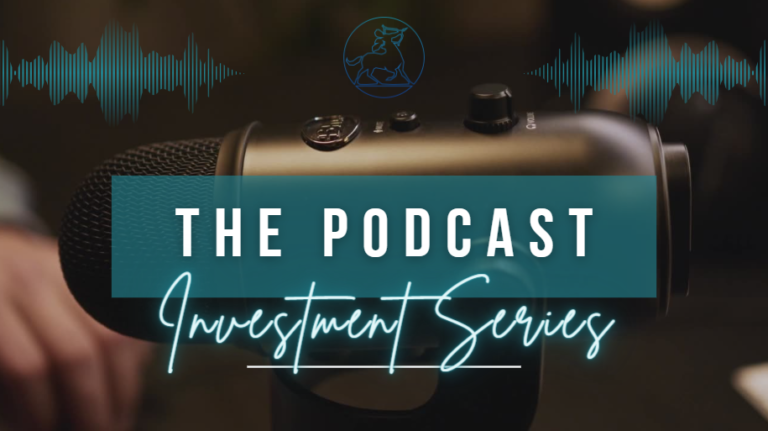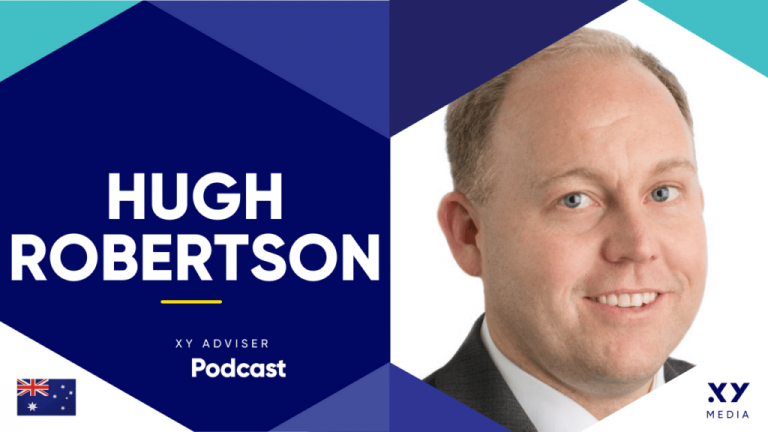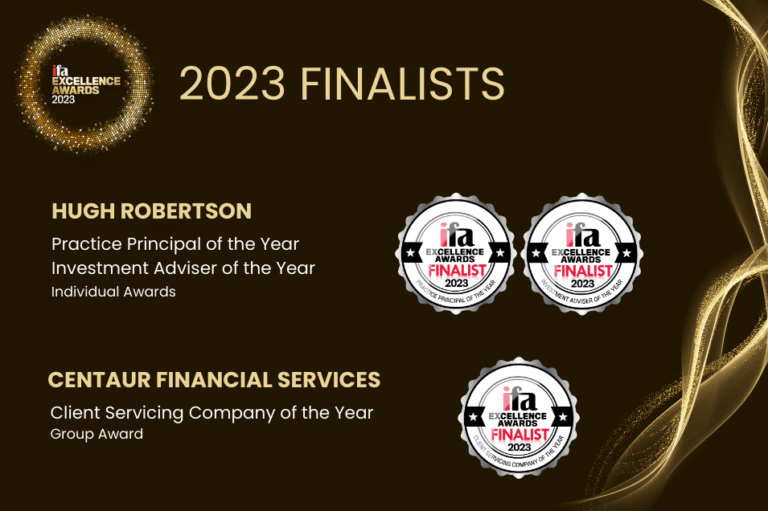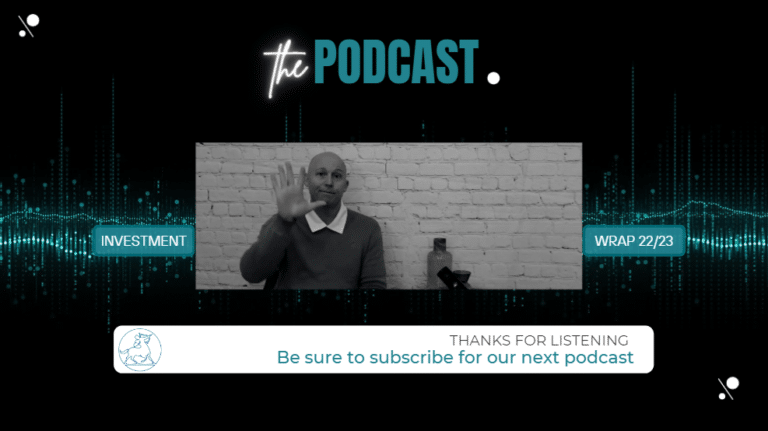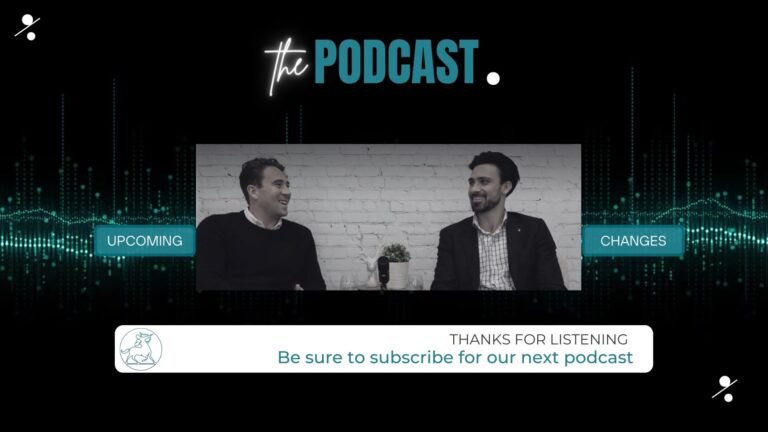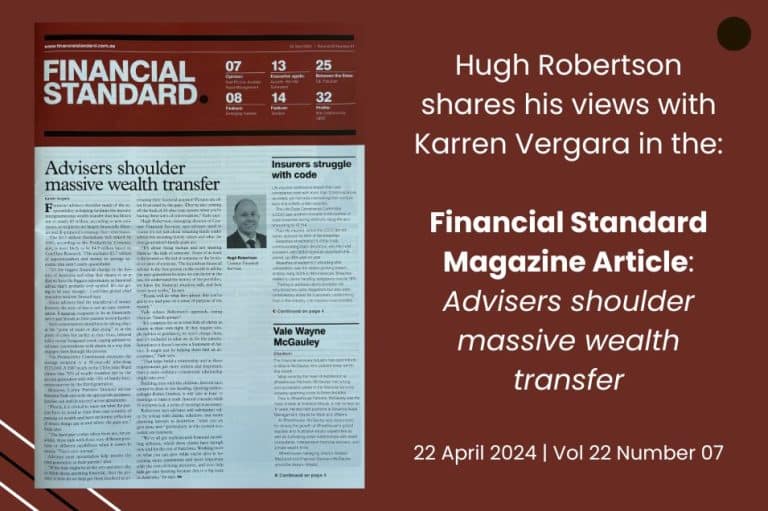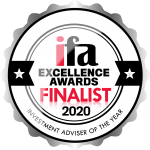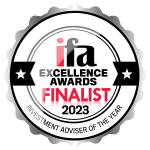Our very own Hugh Robertson joins Livewire’s James Marlay in this special Income Series edition of Buy Hold Sell.
Livewire also invited Pitcher Partners’ Charlie Viola to share his thoughts with Centaur Financial Services’ Hugh Robertson, on five cracking ASX-listed ETFs and one REIT for your income portfolio.
As stated by Livewire in the release of this edition of Buy Hold Sell – these include staples such as the Vanguard Australian Shares ETF and income favourites like the SPDR MSCI Australia Select High Dividend Yield ETF and the BetaShares Australian Investment Grade Corporate Bond ETF.
As you will see, while the two master financial advisers don’t agree on all the ASX-listed products discussed in this episode, there are two, in particular, that has them screaming buy.
Note: This episode was filmed on Wednesday 22nd September 2021. You can watch, listen or read an edited transcript below.
Watch by clicking the below video:
Listen to the audio version by clicking below:
Excerpt Below:
Edited Transcript
“James Marlay: Hello and welcome to Livewire’s Buy Hold Sell. My name’s James Marley, I’m your host today and I’m joined on this special Income Series episode of Buy Hold Sell by Charlie Viola from Pitcher Partners and Hugh Robertson from Centaur up on the Gold Coast. And today, we’re talking about listed income-generating funds and ETFs.
And I’m going to start with you, Charlie. It’s big, $9 billion dollars, Vanguard Australian Shares Index, VAS is the code. Buy, hold, or sell?
Vanguard Australian Shares Index ETF (ASX: VAS)
Charlie Viola (BUY): We’re probably a buy on this one, James. Good, simple ASX 300 exposure, 10 basis points of cost, nothing to hate about this one. Again, a good one for your portfolio. Stick it in there and let it generate revenue for you over time.
James Marlay: It’s big. It’s cheap. Hugh, is it a buy, hold, or sell on VAS for you?
Hugh Robertson (HOLD): I’d have a hold. If I’m to take just the low-cost option, I could go the A200 (BetaShares Australia 200 ETF), which is 0.07% p.a. (in fees). So a little bit cheaper and it sticks to the top 200, whereas the Vanguard is top 300. But again, Vanguard’s a beautiful manager and we really like them. But in this case, I’d probably go down the A200 path.
Vanguard Australian Shares High Yield ETF (ASX: VHY)
James Marlay: Okay, let’s stick with a beautiful manager, but maybe with a little bit more yield. Vanguard’s Australian Shares High Yield ETF. The code is VHY. Billion-dollar market cap, 3.5% yield. Buy, hold, or sell?
Hugh Robertson (BUY): For me, it would be a buy for the income chasing investor. Whereas the Australian share fund is kind of 50-50 between income and growth. This one has about two-thirds of it generating income and 3% growth, so it can hit a lot of people’s income goals while also keeping pace with inflation and quarterly distribution. So a really well run investment option.
James Marlay: Charlie, are you blinded by the beauty of Vanguard’s yield? Are you a buy, hold, or sell?
Charlie Viola (SELL): I think this might be the first time that you and I have disagreed, Hugh. No, I’m a sell on this one. Actually, I don’t like it. We’ve actually held this in the past for clients and we really don’t like it. And while it always says it hits its benchmarks, in reality, it comes up with some spurious income derivative benchmark, and the yield has kind of been okay, but it’s underperformed the general market for a really long period of time. If you’d just gone and held VAS or STW or just a normal A200 or A300, you would’ve actually done a fair bit better. So we actually don’t particularly like this one. The concentration risk has probably been too much to bear over a period of time, so we’re screaming sell on this one, to be honest.
SPDR MSCI Australia Select High Dividend Yield (ASX: SYI)
James Marlay: SPDR, one of the original ETF providers, their Australia Select High Dividend Yield ETF, SYI is the code, nearly 4.5% yield. Buy, hold, or sell, Charlie?
Charlie Viola (HOLD): We’re a hold on this one, and only because it’s probably just a little bit superior to VHY. Again, it comes up with some weird index to match itself against, but if you look at the top holdings in this Macquarie, Wesfarmers, Rio, BHP, Coles, APA group, there’s probably no aversions of holding this one. The yield is reasonably good. I think it’s been touching on 5%, year in year out. So if this is in your portfolio, it can sit there and it can keep putting cash in your bank account.
James Marlay: Okay, SYI. Hugh, are you a buy, hold, or sell?
Hugh Robertson (HOLD): We’d be a hold. If not, maybe even a sell. Similar to the pick in between Vanguard and it basically, with Vanguard having the $1.9 billion (in FUM), the SPDR having $250 million (in FUM), but I agree with Charlie’s point on the indexes that they create and that that is a cause for investigation. So let’s call that one a hold.
SPDR S&P Global Dividend AUD (ASX: WDIV)
James Marlay: Moving on to another SPDR product. It’s the Global Dividend Fund. Global shares are not famous for their income. WDIV is the code. Buy, hold, or sell, Hugh?
Hugh Robertson (HOLD): I’ve got it as a hold. Good dividend yield, good income considering it’s a global fund. Cost is okay at half a per cent, $350 million (in FUM), semi-annual distributions, which is something for investors to consider, but I would hold it just as a diversifier to get my access to global equities because I don’t want to go too top-heavy in Aussie equities.
James Marlay: Charlie, buy, hold, or sell on SPDR’s S&P Global Dividend Fund?
Charlie Viola (HOLD): We’re probably the same as Hugh here. We’re a hold here. So if it’s in your portfolio, it’s an okay one to keep. It’s punching out a reasonable yield given it’s global equities, it’s providing that additional diversity into global equities. And if you look at the top 10 or 15 holdings, there are no offensive names in there. Some of the distribution is capital so if you are lucky enough to be paying tax in retirement, you’re actually getting a little bit of benefit from that because it is reasonably tax effective. It’s not one that we would rush out and buy, only because we’d probably see global equities for a different purpose. But if it’s there, you might as well hold it and forget about it and keep taking income.
Charter Hall Long WALE REIT (ASX: CLW)
James Marlay: This one we’re talking about next is Charter Hall Long WALE REIT. And Charlie, I might put you on notice to give us a quick explainer around what’s underneath this one, because it’s not your typical ETF. So is this a buy, hold, or sell?
Charlie Viola (BUY): We’re a big buy on this one. We actually like it. We use it a lot, we use it for most client portfolios. So the Charter Hall Long WALE Fund is as it sounds, it’s a portfolio of really good quality commercial, industrial, and retail properties run by Charter Hall, which is obviously a massive fund manager in the property space. Long WALE just stands for weighted average lease expiring, which just means that all of the underlying buildings, when you average them out, have got long lease expiries, which means that the revenue produced from that portfolio has got a good sense of continuity to it. So we like the yield, we like the manager, we like the underlying assets. It’s a massive fund, it’s reasonable in cost. It’s a good one for virtually all portfolios, but certainly for those people who are seeking retirement income.
James Marlay: Charlie’s a bull on the Long WALE. Has it got a spot in your portfolio? Hugh, buy, hold, or sell?
Hugh Robertson (BUY): It would be a buy from me as well. It’s growing in size, great yield, the WALE is 13.2 years. It’s very well diversified. The one thing we would be looking at is they did do around $1.4 billion in acquisitions last year. So just making sure that quality is still there. But a manager of Charter Hall’s reputation is well above board and we can be quite comfortable with that as an investment for our retirees. And to Charlie’s point, long term leases can give you some certainty in income, especially during the volatility that we’ve been through in the last 18 to 24 months, so buy.
BetaShares Australian Investment Grade Corporate Bond ETF (ASX: CRED)
James Marlay: Our final one for today, it’s from the prolific ETF provider BetaShares who have been a great local success story. It’s their investment grade, corporate bond ETF. The code is CRED. Hugh, are you a buy, hold, or sell on CRED?
Hugh Robertson (BUY): We’re a buy. We’ve held it in our portfolios. We did dip out of it last year when there was market volatility. We were just worried about what could happen with credit securities. But it didn’t happen, what could have happened. It did have some equity-like volatility, but it recovered really well. Low cost, good income, paid monthly. So we would be a buy on that, it’s a replacement as an alternative to cash.
James Marlay: So that’s a buy there. Charlie, final ETF for you. CRED, buy, hold, or sell?
Charlie Viola (BUY): We’re a buy on this one as well, James, for all the reasons that Hugh points out. A diverse array of investment-grade bonds, and a really simple way to do it. I think it costs 25 basis points and the running yield’s 2.5%. It’s probably a little long duration for us. But in reality, if it’s stuck in your portfolio, it’s a bit set and forget. But we’re a buy, we like it, and we certainly use it as well.
James Marlay: Well for all you viewers out there, that was our two experts giving us their view on six listed ways of getting some income exposure into your portfolio. A big thanks to Charlie and Hugh who have shared their views today on this special Income Series episode of Buy Hold Sell.”
The information provided on and made available through this website does not constitute financial product advice. The information is of a general nature only and does not take into account your individual objectives, financial situation or needs. It should not be used, relied upon, or treated as a substitute for specific professional advice. We recommend that you obtain your own independent professional advice before making any decision in relation to your particular requirements or circumstances. Centaur Financial Services do not warrant the accuracy, completeness or currency of the information provided on and made available through this website. Past performance of any product discussed on this website is not indicative of future performance.




